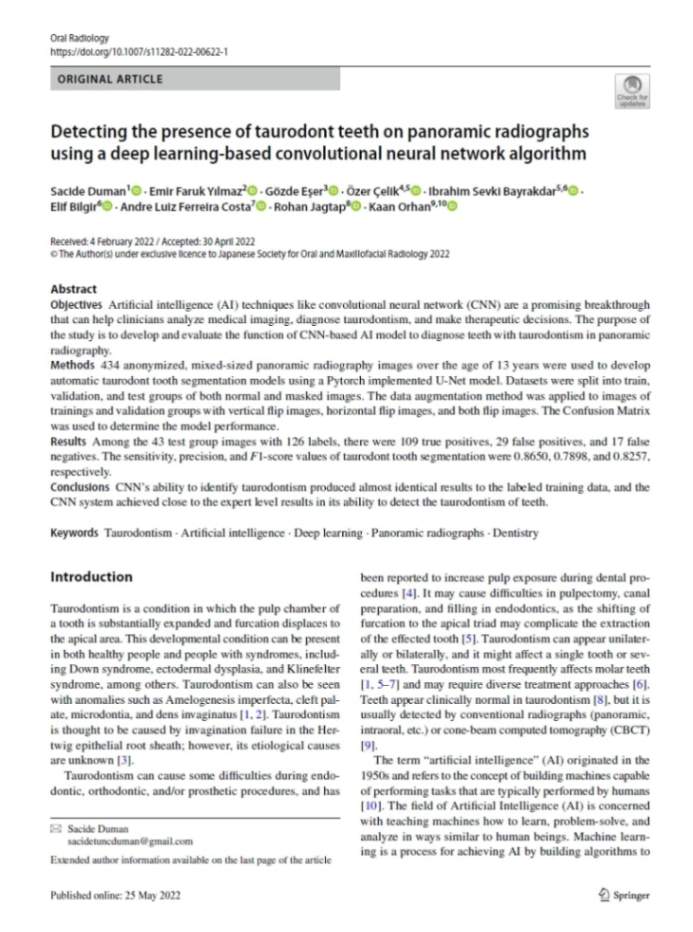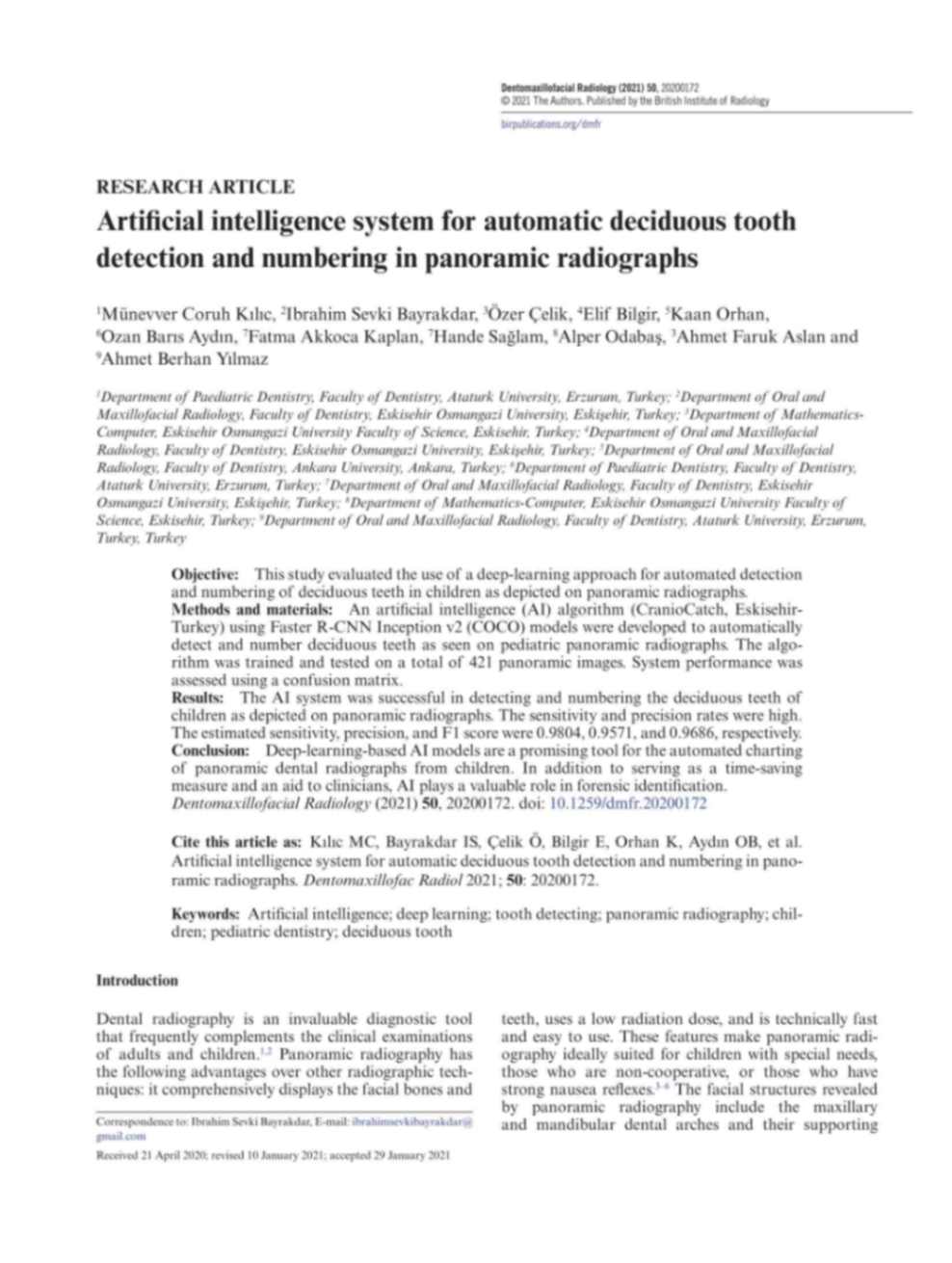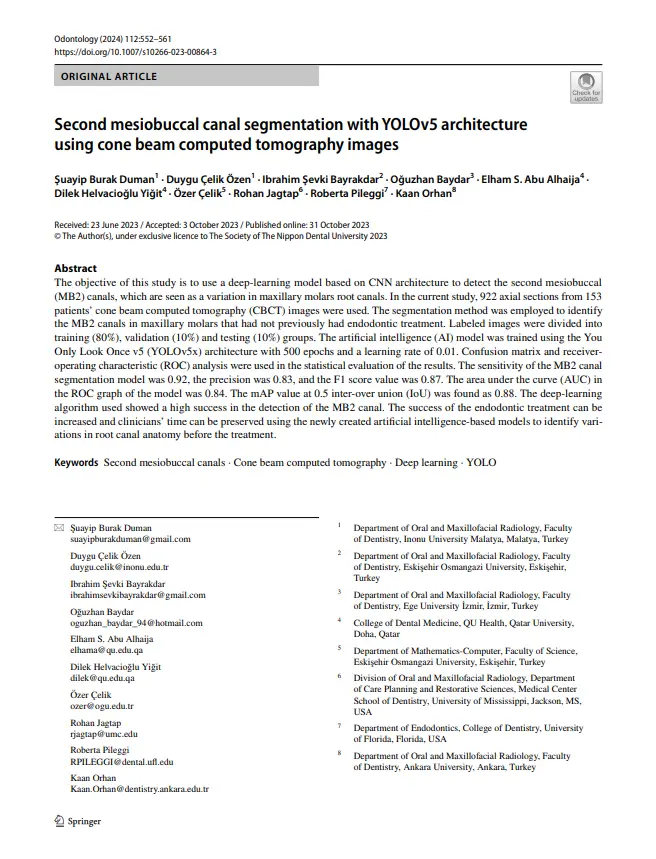Detecting Pulp Stones with Automatic Deep Learning in Bitewing Radiographs: A Pilot Study of Artificial Intelligence
Introduction
The study introduces the use of deep learning (DL) in dental radiology for detecting pulp stones, highlighting the potential benefits of AI in improving diagnostic accuracy and efficiency in dentistry.
Methods
Authors A.A. and S.U. scanned and marked pulp stones on bitewing radiographs, while I.S.B. and O.C. resized images and evaluated the model. The DL model was trained using the Mask R-CNN architecture, with metrics such as True Positive, False Positive, Sensitivity, Precision, and F1 score used to evaluate its performance.
Results
The DL model achieved a high F1 score of 0.8995, indicating its effectiveness in detecting pulp stones. Comparative evaluations between expert markings and AI markings showed promising results, with the model demonstrating good sensitivity and precision.
Discussion
The study discusses the importance of DL applications in dental practice, particularly in radiology, emphasizing the role of AI in analyzing complex imaging data. It also touches upon the potential of AI to assist dentists in diagnosing routine cases more efficiently, saving time for more complex scenarios.
Conclusion
The pilot study demonstrates the feasibility and effectiveness of using DL for detecting pulp stones in bitewing radiographs. The findings suggest that AI technologies have the potential to enhance diagnostic capabilities in dental radiology, paving the way for future advancements in the field.
Implications
The study's results have implications for improving diagnostic accuracy, reducing misdiagnosis, and assisting dentists, especially in busy clinical settings. The integration of AI in dental imaging holds promise for enhancing patient care and streamlining diagnostic processes in dentistry.
Future Directions
The study sets the stage for further research on AI applications in dental radiology, encouraging the exploration of DL models for other dental conditions and imaging modalities. Future studies could focus on refining AI algorithms, expanding datasets, and validating the use of DL in clinical practice for improved patient outcomes.
I Want to Write a Scientific Research Project
CranioCatch is a global leader in dental medical technology that improves oral care in the field of dentistry. With AI-supported clinical, educational, and labeling solutions, we provide significant improvements in the diagnosis and treatment of dental diseases using contemporary approaches in advanced machine learning technology.
CranioCatch serves thousands of patients with dental health issues worldwide every day with its innovative technologies. That’s why we eagerly look forward to meeting our valued dentists who wish to work in the field of 'Scientific Research in Dentistry'.



 Contact Us
Contact Us

